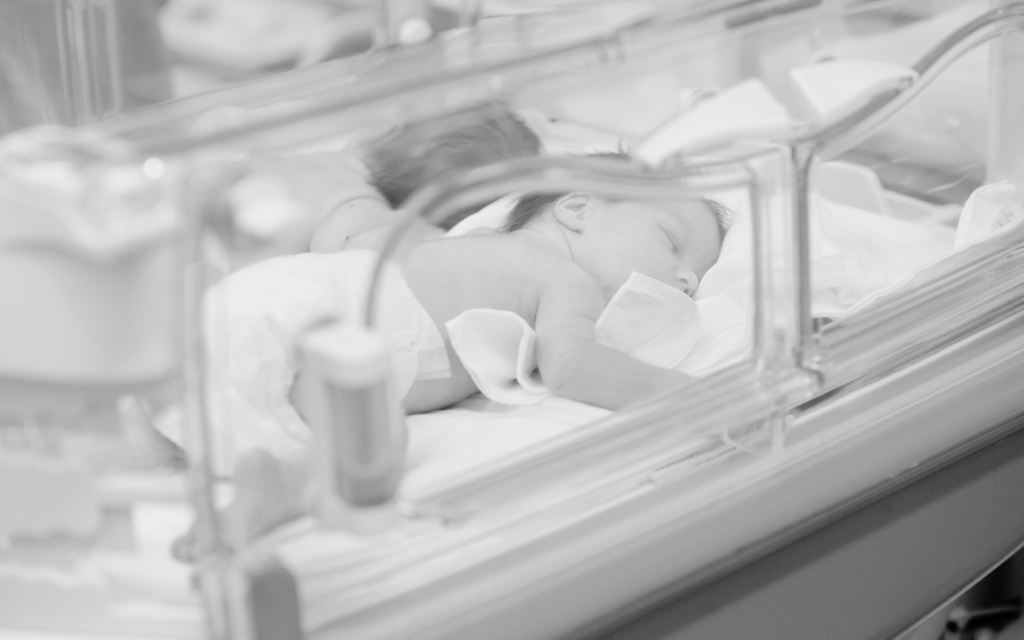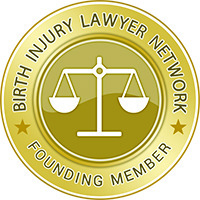During the third trimester, the finish line is in sight! It’s almost time for your baby to make her grand entrance into the world. But she’s not in the clear just yet. You should still keep a watchful eye for signs your baby is in distress in the third trimester.
We encourage you to know and understand the things that signal fetal distress in the womb. That way, you can catch them early on, and tell your doctor. Quick intervention can address and resolve a medical problem, should one arise.

What is Fetal Distress?
Fetal distress is a medical term that means a baby (fetus) in the womb is not doing well. It means they’re experiencing some sort of problem or stress during pregnancy or delivery.
When a baby is in the womb, it relies on the mother’s placenta and umbilical cord to get oxygen and nutrients. If something affects the baby’s oxygen supply, or if there’s a problem with the baby’s heart rate, it can lead to fetal distress; diagnosed, ideally, as soon as possible.
Another term doctors often use in place of fetal distress is “nonreassuring fetal status”.
Signs That the Baby is in Distress: Third Trimester
You should always be on the lookout for signs your baby is in distress in the womb. But be especially watchful during the third trimester. It’s the time in pregnancy when fetal distress is most likely to happen.
This is one reason why prenatal monitoring gets more frequent as you approach your due date. Certain dangers become increasingly likely, like umbilical cord compression, which can compromise blood flow and oxygen delivery to the fetus, which can cause fetal distress.
What are the Signs of Fetal Distress?
Common signs that the baby is in distress in the third trimester include:
- Quick weight gain
- Vaginal bleeding
- Reported decreased fetal movements; when the baby is moving less or not at all (ask your doctor how to measure kick counts)
- Abdominal pain
- Preterm contractions/cramps
- Abnormal fetal heart rate
- Abnormal amniotic fluid levels
- Meconium in the amniotic fluid
- Excessive fetal growth
- Fetal growth restriction
- Abnormal results of biophysical profile (BPP) (fetal breathing, amniotic fluid volume, fetal movement, and fetal tone)
You may notice that some of the signs above can only be measured with a doctor’s help. At each prenatal appointment, your doctor should use ultrasounds and other tests to make sure there are no signs your baby is in distress in the womb.

Causes of Fetal Distress in the Third Trimester and Delivery
Some common causes of fetal distress include:
- Problems with the placenta. The placenta might not be working correctly, which can limit the baby’s oxygen and food supply.
- Fetal anemia. The level of red blood cells is lower than it should be.
- Oxygen deprivation. When the baby doesn’t receive enough oxygen before or during birth, it can lead to fetal distress.
- Umbilical cord issues. If the umbilical cord gets compressed or twisted (sometimes into a true knot), it can reduce blood flow and oxygen to the baby.
- Maternal health issues. Certain health conditions in the mother, like high blood pressure or diabetes, can cause fetal distress.
- Infections. Infections during pregnancy can also cause fetal distress. Examples include cytomegalovirus (CMV), toxoplasmosis, and rubella.
- Low amniotic fluid. A condition known as oligohydramnios, low amniotic fluid surrounding the baby can restrict fetal movement and growth, and cause fetal distress.
- Complications during labor. Difficulties during labor can put stress on the baby.
- Preeclampsia: Characterized by high blood pressure in the mother, preeclampsia can reduce blood flow to the fetus, causing distress.
This isn’t an exhaustive list of everything that can cause fetal distress. Sometimes the cause is unknown.
In rare cases, a doctor’s actions can be the cause. One example of this is when a doctor uses forceps or a vacuum to assist delivery, but does so improperly.
Treatment for Fetal Distress
When doctors notice signs of fetal distress, they should take quick action to help the baby. Depending on the severity and cause of the distress, they may try different interventions, such as:
- Changing the mother’s position.
- Providing oxygen to the mother.
- Performing an emergency C-section to deliver the baby safely (for more serious complications).
- Giving an amnioinfusion if the amniotic fluid is low.

Legal Help for Harm Caused by Untreated Fetal Distress
Ever heard the phrase, “trust your gut”? That’s certainly applicable in pregnancy. If you feel something is wrong during your pregnancy, trust your instincts. The baby is in your womb, and no one else’s, after all.
Unfortunately, we’ve seen cases where doctors ignored a woman’s gut feeling that her fetus was in distress. They failed to check for distress and thus failed to treat it.
Falling to treat fetal distress can lead to complications and birth injuries like the following:
- Hypoxic-ischemic encephalopathy (HIE)
- Cerebral palsy
- Seizures
- Hearing impairments
- Vision problems
- Intellectual disabilities
- Behavioral disorders
Did doctors fail to heed signs your baby was in distress in the third trimester or delivery? Was your child diagnosed with a birth injury? If so, you may be eligible for compensation to help you pay for your child’s care.
Contact us for a free consultation. We’ll examine the details of your case and advise you on possible legal options.












